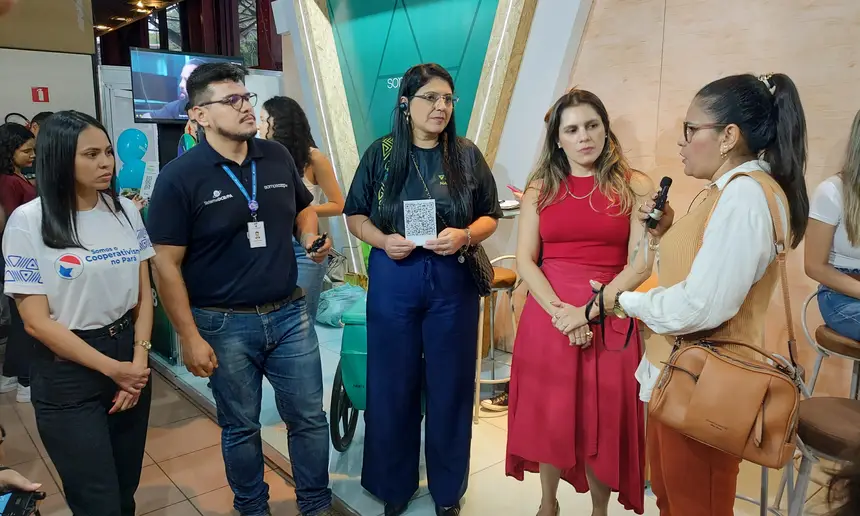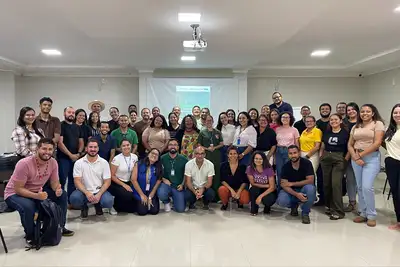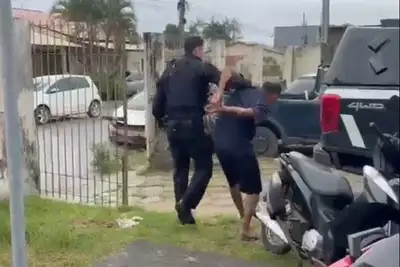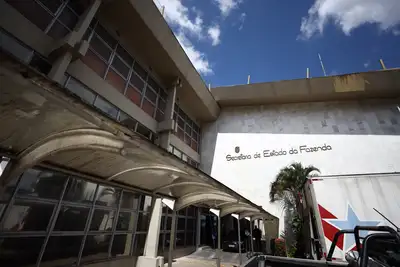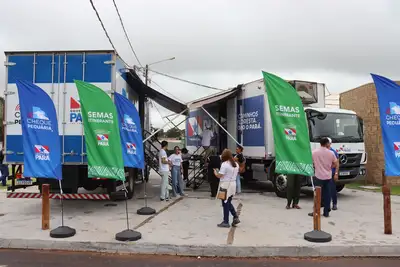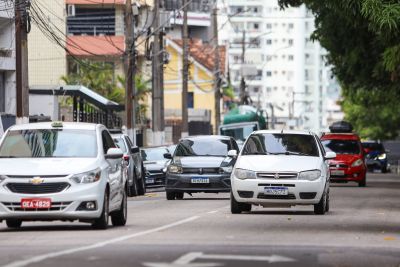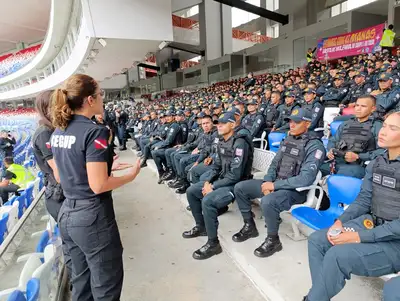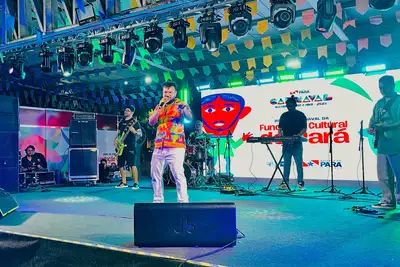Sedeme promotes cooperative business round and strengthens the economy
The Secretary of Economic Development of Pará (Sedeme) brought together representatives from the private sector and class entities
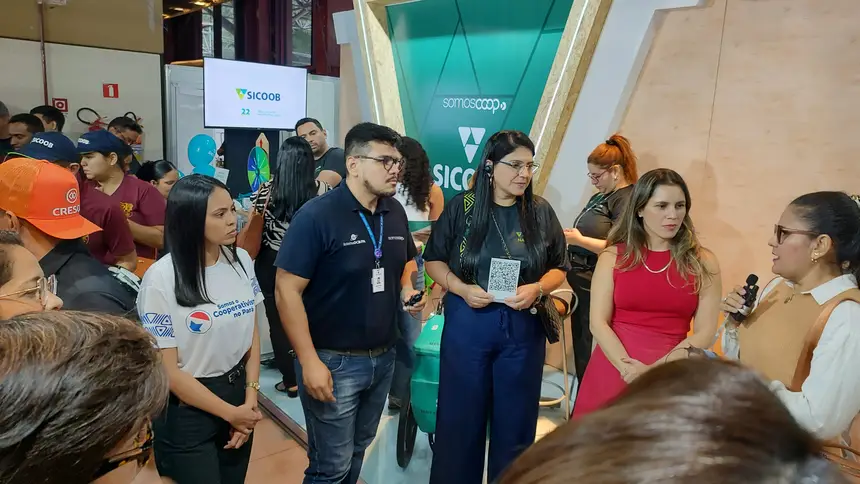
Boosting the local economy, focusing on prospecting new businesses and verticalizing the productive chains of the Pará cooperative segment. This was the main objective of the Business Round held on April 25 and 26 by the Secretary of Economic Development, Mining and Energy (Sedeme), through the Cooperative Directorate (Dcoop), in partnership with the Brazilian Cooperative Organization of Pará — OCB/PA System.
According to the organizers, it was a market-oriented event that brought together representatives from companies, as well as from the Women's Business Council (CME/PA), led by president Mayanna Oliveira. The technical team from the OCB/AP System also participated, with president Mara Nascimento and 14 other members, along with representatives from the Commercial Association of Pará (ACP), owners of the Açaí Paraense Industry from Abaetetuba, among other local businesses and institutions.
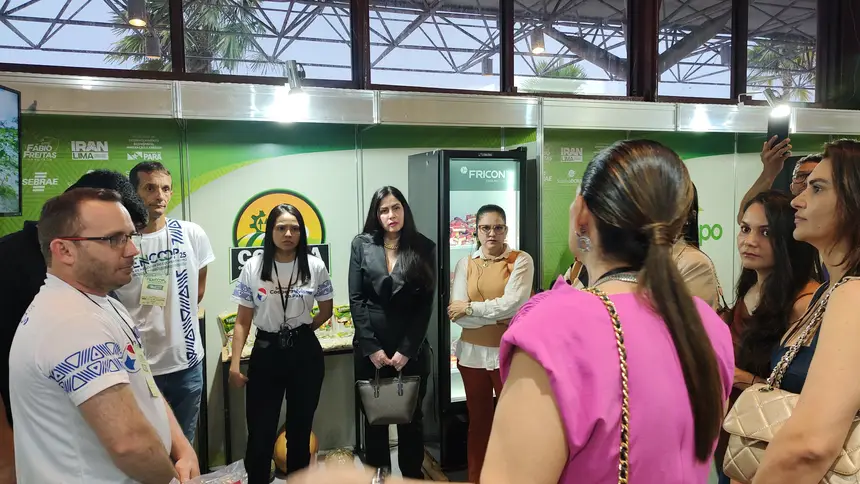
The action was part of the program for the 5th Pará Cooperative Fair (Fencoop 2025), which took place from April 24 to 26 at the Estação das Docas. The Business Round was conducted in a guided format, providing a targeted and strategic experience for participants.
The action was led by the director of Cooperativism at Sedeme, Luziane Sena, and by the manager of Cooperative Development at the OCB/PA System, Diego Andrade. At each stop at the booths, they presented the cooperatives to visitors, highlighting their respective areas of operation.
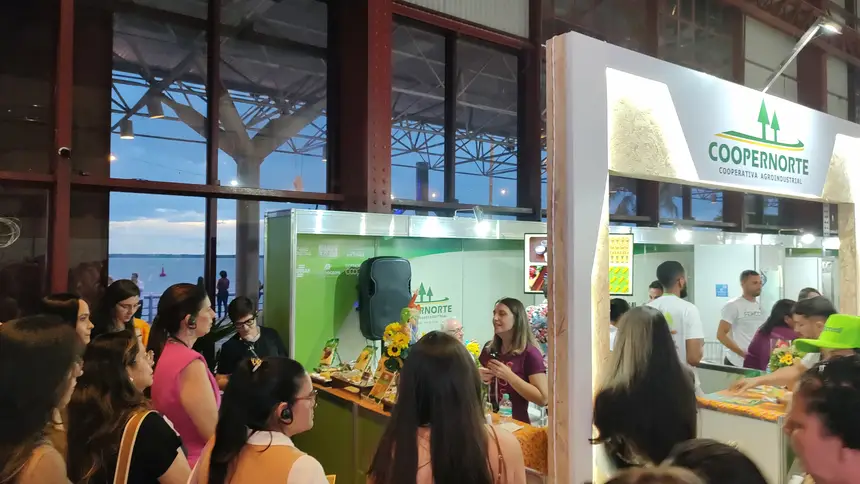
To facilitate communication during the journey, the members of the round used walkie-talkies, which allowed for efficient interaction with the exhibitors, even amidst the intense movement of the fair. Throughout the visit, participants had direct contact with cooperatives from various economic segments, getting to know their products and services.
Each cooperative member had the opportunity to present the main characteristics of their business to potential investors and business partners. Sustainable cultivation practices, production processes, production capacity, time in the market, number of families involved, among other relevant aspects of the productive chains, were highlighted.
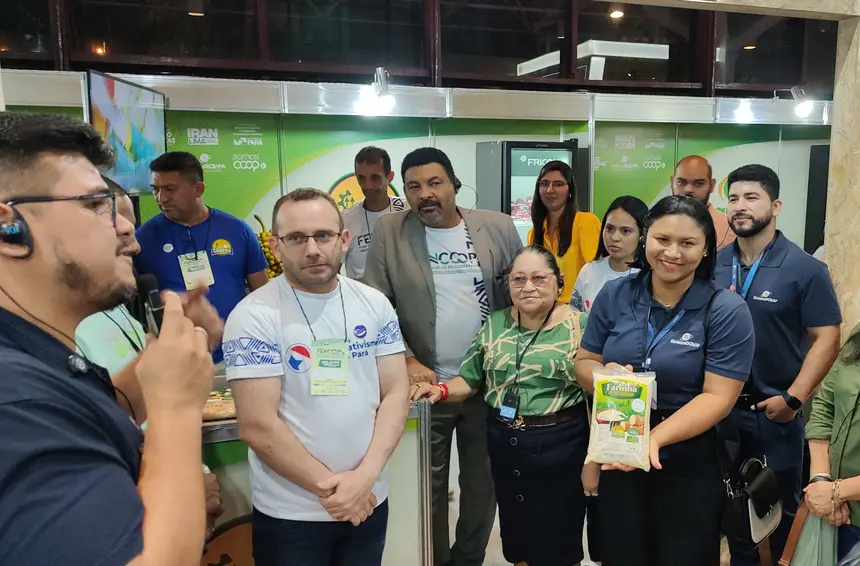
Among the cooperatives visited were: the Brazilian Financial Cooperative System (Sicoob), with national operations; the Agroindustrial Cooperative of Amazon Fruits (Coafra), formed by over 270 cooperative farmers, based in the municipality of Castanhal, in northeastern Pará; the Northern Agroindustrial Cooperative (Coopernorte), with 98 members, based in Paragominas–PA; the Social Work Cooperative Entrepreneurial Art (Coostafe), which brings together women under the custody of the State Penitentiary System Superintendency (Susipe) and produces handmade pieces; and the Mixed Agricultural Cooperative of Tomé-Açu (CAMTA), founded in 1929 by Japanese immigrants in the Tomé-Açu region.
In addition to these, other cooperatives participating in the fair also welcomed the delegation, expanding the possibilities for commercial articulation and visibility for Pará cooperativism.
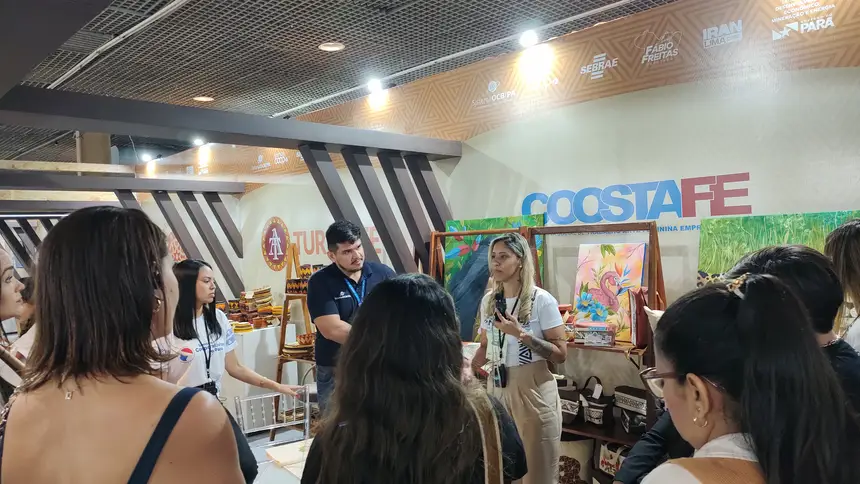
For the director of Cooperativism at Sedeme, Luziane Sena, the guided business round model promotes strategic interaction between representatives of companies and cooperatives, aiming to generate concrete business opportunities and strengthen the state's economy. According to her, this format stimulates dialogue, collaboration, and integration among the various actors in the productive chain.
The president of Coafra, Joel Linhares Cavalcante, enthusiastically welcomed the visit of potential investors. He emphasized that the Business Round format at Fencoop was a true innovation at the fair:
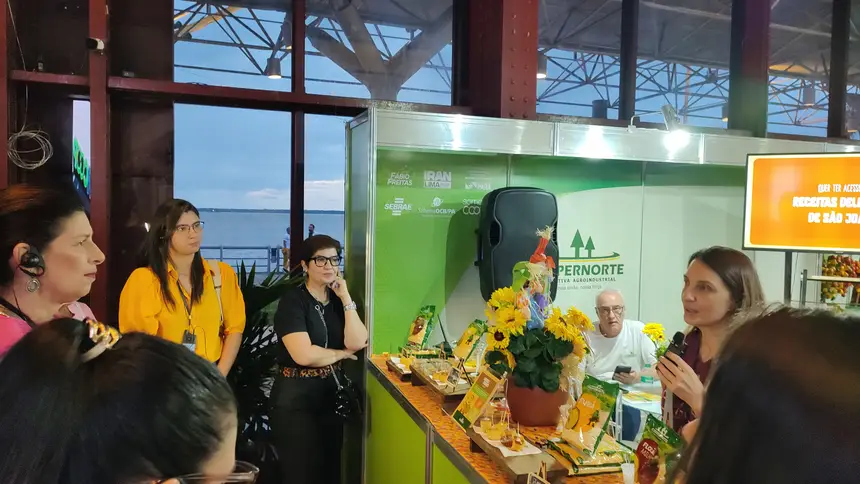
“I was very happy to receive this group. Presenting our products in a more focused and directed way made all the difference. We noticed the real interest of the participants, who asked questions about the production process and showed curiosity about the details of our products. This gives us the expectation of closing good deals. Even if only one or two materialize, it will already be extremely positive for the cooperative, as this is exactly our goal at the fair: to generate real market opportunities,” he explained.
Mayanna Oliveira, President of the (CME-PA), highlighted that when she received the invitation for the Business Round, she imagined it would just be a visit to get to know the services and products on display.
“It was much more than a visit. We had the opportunity to learn stories, understand how the cooperatives emerged, and how the dynamics between them work. For me, as a woman and representative of the council that promotes female entrepreneurship, it was inspiring. We saw how women play a fundamental role in this process, being the support of the family, generating income, and taking charge of their businesses. This motivates us, at CME, not only to seek commercial partnerships but to offer training, support, and strength to these women through the courses and actions we develop at ACP. We want to add and grow together,” she emphasized.
Cirede Carloto is a businesswoman, rural producer, and director of the Women Cooperativists' Nucleus of Coopernorte, and she highlighted that the idea of bringing the business round to the fair is positive. “It is very gratifying to receive at the booth people who are interested not only in the products but also in the context in which they are produced. Presenting the economic potential of Coopernorte's products is very gratifying and will certainly provide us with new opportunities in the market,” she said.

The Secretary of Economic Development, Mining and Energy, Paulo Bengtson, emphasizes that the business round facilitates direct and agile connections between companies and cooperatives. According to him, the event offers an excellent opportunity for cooperatives to present their products and services to potential partners and clients, increasing their visibility in the market. In addition, it creates a favorable environment for networking, exchanging experiences, and generating strategic partnerships, strengthening the local economy and valuing cooperativism as a model of sustainable development.



